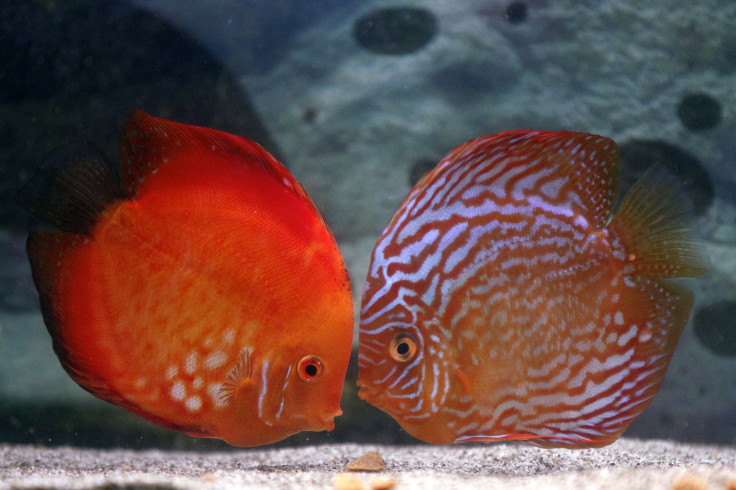Danger Lurking in Your Tank: "Disturbing" Number of Pet Fish Carry Deadly Superbug That Can Infect Humans

People who keep tropical fish in tanks at home or at work may be at risk from bacterial infections and life-threatening disease, according to a new study.
Scientists from Oregon State University found that a "disturbing" number of ornamental tropical fish in the U.S. are already resistant to antibiotics.
In essence, researchers say that the latest findings mean that fish shipped from foreign countries are carrying bacterial infections that can easily spread to humans and cannot be treated with antibiotics.
"The range of resistance is often quite disturbing," the researchers wrote in their report, which was published in the Journal of Fish Diseases. "Imported ornamental fish are commonly colonized with bacterial species of potential human and animal harm."
Researchers explain that antibiotics are often used when fish are shipped from overseas to stop bacterial infections and diseases from developing when the fish get stressed.
In the latest study, researchers examined 32 freshwater fish, including common household species like neon tetras, cory catfish, and flame gouramis. Researchers tested for resistance to nine different antibiotics.
The findings revealed that fish transported from Colombia, Florida and Singapore had antibiotic-resistant bacteria that could potentially infect humans, including Staphylococcus, which causes Staph infections of the skin; Aeromonas, which causes stomach flu symptoms; and a type of Mycobacterium that can lead to skin lesions.
Researchers found that there was resistance found to every one of the nine antibiotics tested and 77 percent of the fish were resistant to the most common antibiotic tetracycline, a drug used to treat infections like chlamydia in humans
Researchers say that the finding is "not surprising considering the widespread use of these classes [of antibiotics] in the ornamental fish industry". However, they were surprised to discover that the fish were also resistant to some antibiotics that aren't commonly used.
"We don't know why that is, it could be industry testing that's going on somewhere," co-author Tim Miller-Morgan, a veterinary aquatics specialist with Oregon State University, told Mother Jones.
Researchers also said while they had expected to find some antibiotic resistance, they were surprised to find such high levels of resistance.
Scientists say that the transmission of diseases between fish and humans is rare. However, researchers from the current study warned that people who own or work with tropical fish and those with weak immune systems are most at risk.
Researchers said that to avoid the risk, people should only buy healthy fish and should refrain from cleaning tanks with open cuts or sores on their skin.
Researchers said that if a fish is sick, it should be removed from the tank. New fish should also be quarantined in a separate tank for at least 30 days. Experts recommend people to always wash their hands when working with fish and to never use antibiotics in a fish tank unless they have been instructed by a vet to do so.
"We don't think individuals should ever use antibiotics in a random, preventive or prophylactic method," Miller-Morgan said in a statement. "Even hobbyists can learn more about how to identify tropical fish parasites and diseases, and use antibiotics only if a bacterial disease is diagnosed."
Researchers noted that frequent and unregulated use of antibiotics is a growing problem in the ornamental fish industry, which is now a $900 million annual business in the United States.



























